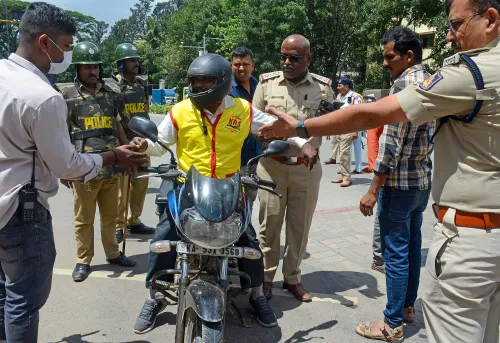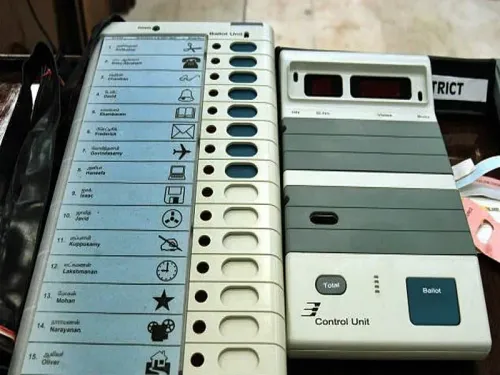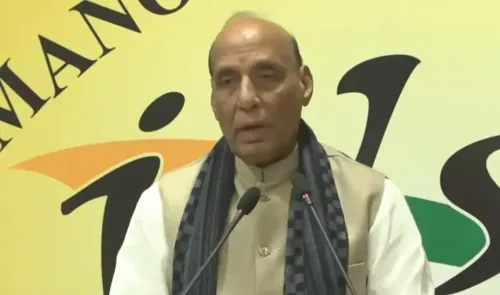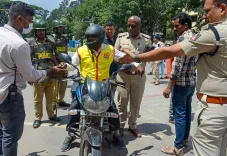What Are Punjab's Responses to Haryana's Water Allocation Claims?
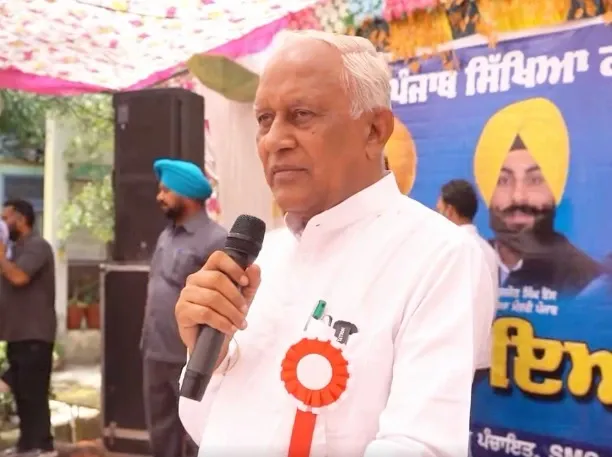
Synopsis
Key Takeaways
- Punjab condemns Haryana's misleading claims.
- Current water distribution is less than claimed.
- Punjab asserts its constitutional rights to water.
- Minister stresses need for transparency.
- Collaboration over misinformation is essential.
Chandigarh, May 23 (NationPress) Punjab's Water Resources Minister Barinder Kumar Goyal has strongly criticized Haryana's deceptive claims concerning the water distribution from the Bhakra Main Line (BML) canal, labeling it a calculated effort to mislead the public and divert attention from the actual circumstances.
In response to assertions that Haryana is fully receiving its entitled share of 10,300 cusecs from the BML canal, Goyal firmly stated that such declarations are not just inaccurate but also indicate a troubling trend of misinformation intended to mislead the residents of Haryana. He emphasized that the reality stands in stark contrast to these fabricated claims.
Disputing Haryana's perspective, Minister Goyal noted, "As measured at noon today, the BML canal has not yet achieved its maximum operational capacity of 11,700 cusecs in Punjab. Water levels are being methodically adjusted in line with standard procedures."
The minister provided insights into the genuine water allocation scenario, stating that at the BML canal's starting point in Punjab, "we are currently receiving 9,690 cusecs. Punjab is utilizing 2,025 cusecs of this allocation for its rightful needs. After accounting for the legitimate shares of Delhi and Rajasthan, Haryana is receiving 6,720 cusecs, which is considerably lower than their claimed allocation."
Reiterating the state's dedication to fair water distribution while safeguarding interests, Minister Goyal asserted that Punjab will uphold its constitutional rights to use its full entitled share of 3,000 cusecs.
He indicated that Haryana will receive the remaining water strictly based on the operational capability of the BML canal system.
The minister criticized Haryana's tactics, remarking, "Instead of engaging in such disgraceful publicity stunts and propaganda, Haryana should pursue honest discussions and provide accurate information to its citizens. The public deserves transparency, not manufactured narratives."
He underscored that Punjab "remains dedicated to cooperative federalism and responsible resource sharing but will not accept efforts to distort facts or undermine legitimate water rights."


